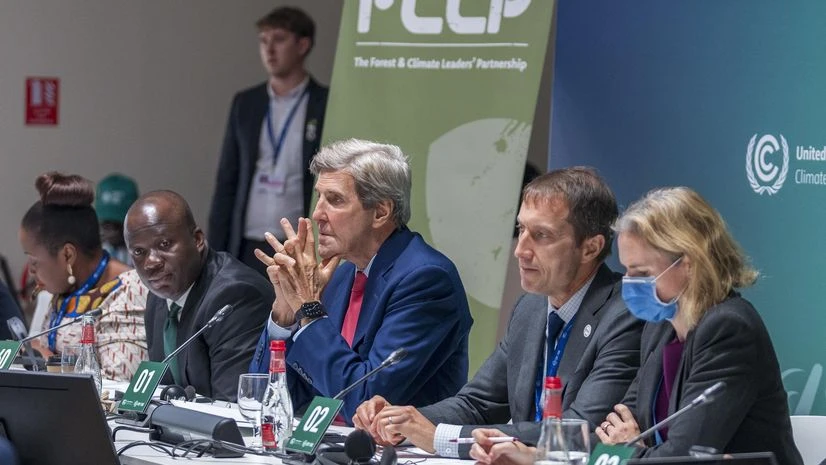Calling the electrification drive in India's transport sector one of the most significant opportunities, US Special Envoy on Climate Change John Kerry on Saturday said the quicker India pursues this initiative, the more it mitigates greenhouse gas emissions, leading to a reduction in pollution and enhancement of the country's overall security.
Kerry said embracing rapid electrification not only aligns with environmental goals but also contributes to a cleaner, more sustainable, and secure future for the country.
Speaking at an event at the Indian Pavilion during the global climate talks COP28, Kerry said: "Electrification in India is one of the biggest opportunities that we have. The faster that India can do this, the more it cuts greenhouse gas emissions and it cuts pollution, it increases India's security."
He said supply chains play a critical role in India's booming economy, which is currently witnessing the rapid growth of new urban centres.
Embracing Prime Minister (Narendra) Modi's visionary concept of a circular economy and expanding access to low-carbon public transport is an exciting prospect, the former secretary of state said.
Taking a significant first step towards realising this vision involves India's commitment to electrify 50,000 buses, Kerry said, stressing the goal set by the Modi-led government.
It is imperative to underscore that this effort is a collaborative endeavour, he added.
More From This Section
Kerry said the focus is on implementing Indian solutions to maximise domestic opportunities, particularly in the endeavour to decarbonise the transportation sector.
This initiative builds upon India's past successes in envisioning and implementing the deployment of 50,000 electric vehicles, marking a substantial stride towards sustainable and eco-friendly transportation practices, he added.
Environment Minister Bhupendra Yadav was also present at the gathering.
To achieve the goal of net zero emissions, the adoption of electric vehicles (EVs) plays a crucial role and given that buses serve the mass public, prioritising electric buses is essential as a significant mode for decarbonising the transport sector, Yadav said.
He said that this transition to e-buses, however, posed challenges to public transport authorities (PTAs) owing to their high upfront costs and lower realisation of revenue from operations.
The India-US Payment Security Mechanism (PSM) for e-buses will serve as an incentive for both Indian and international original equipment manufacturers (OEMs) or bus operators to participate in e-bus operations and potentially establish a manufacturing hub in India, contributing to the growth of e-bus industry and e-bus exports, Yadav added. PTI UZM
(This story was produced as part of the 2023 Climate Change Media Partnership, a journalism fellowship organized by Internews' Earth Journalism Network and the Stanley Centre for Peace and Security.
(Only the headline and picture of this report may have been reworked by the Business Standard staff; the rest of the content is auto-generated from a syndicated feed.)

)
